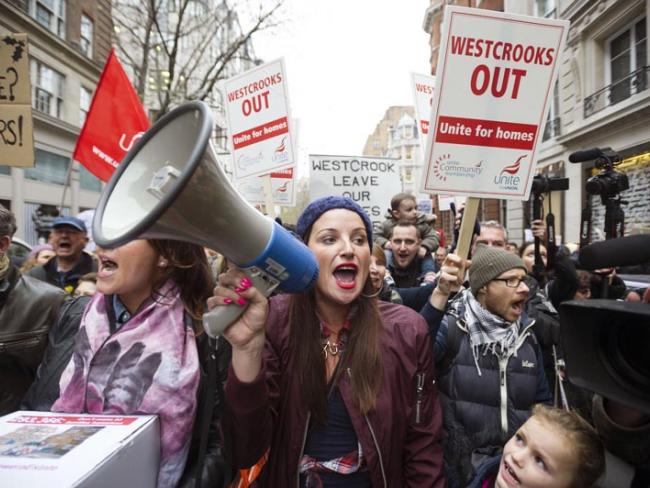
Young and old marched in last year’s successful fight to stop the (relatively affordable) New Era housing estate being sold to Westbrooks. Photo Andrew Wiard/www.andrew-wiard.info
Young people struggle to find decent housing. Few are able to build up the cash for a deposit, so they are locked out of the housing market. Many more young people now live for long periods in the expanding private rented sector. That accommodation is insecure, of variable quality and often very expensive.
The government's English Housing Survey paints a bleak picture for young people. In London 16- to 24-year-olds spend an astonishing 88 per cent of their income on rent. Taking housing benefit into account, the figure is 81 per cent, but that will soon be scrapped for under-21s. Being unable to save for a house forces many young people to remain for longer periods in their parents’ homes well into their 20s, or to return home after leaving for university or beginning work.
The Citizens Advice Bureau warns that young people aged 17-24 are up against it. Its data show that young people are particularly seeking help with housing and employment – and that they are much more likely than clients in other age groups to need help with them. And of course adverse labour market circumstances combined with high housing costs make it harder to move around for jobs.
The combination of low wages, unemployment and tighter housing markets mean that young people cannot establish independent households. Many young adults now go through a protracted period without traditional family responsibilities, replaced by non-family living. Such difficulties affect their health and well-being and make it increasingly difficult to maintain protective social relationships.
● Related article: The war against youth
● Related article: Capitalism will damage your mental health
